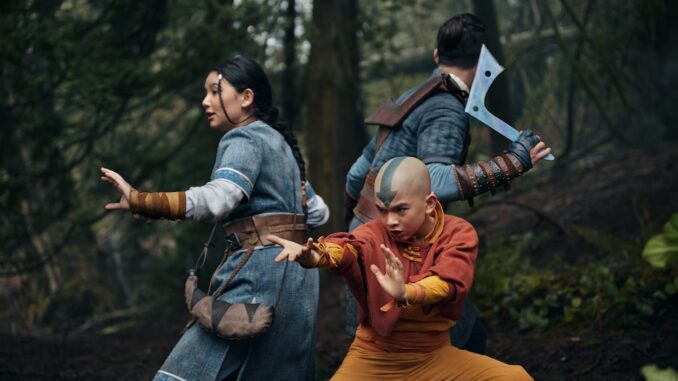
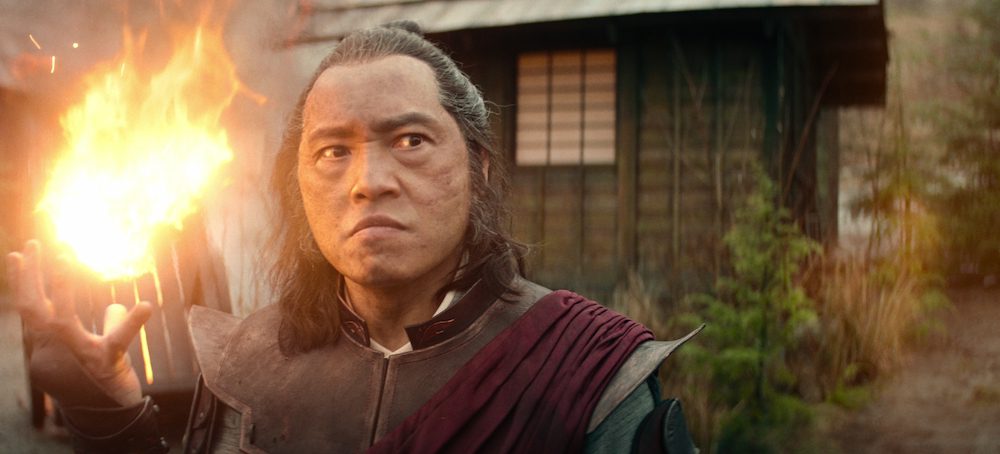
I didn’t expect the animated Avatar: The Last Airbender series to bring me to tears, but it did. Back when I caught it in 2009, I wept at The Day of Black Sun two-parter. The episodes saw the hopeful protagonists discovering a tactical advantage, which would lead to their best chance of winning the war. But the two-parter was smack in the middle of the final season – so instead of being victorious, their hopes were cruelly dashed as they were almost decimated and nearly wiped out. To see their hopes and dreams crushed so painfully, all in the span of 44 minutes (2 episodes) – I still feel that despair, that hopelessness, that sense of loss whenever I talk about it.

So of course, I had high expectations for the live-action Avatar: The Last Airbender series on Netflix. I mean, didn’t everybody? The franchise already had a less-than-stellar live-action film adaptation, so fears were not unfounded.

And I’m quite happy to say – I liked it. I liked it very much.
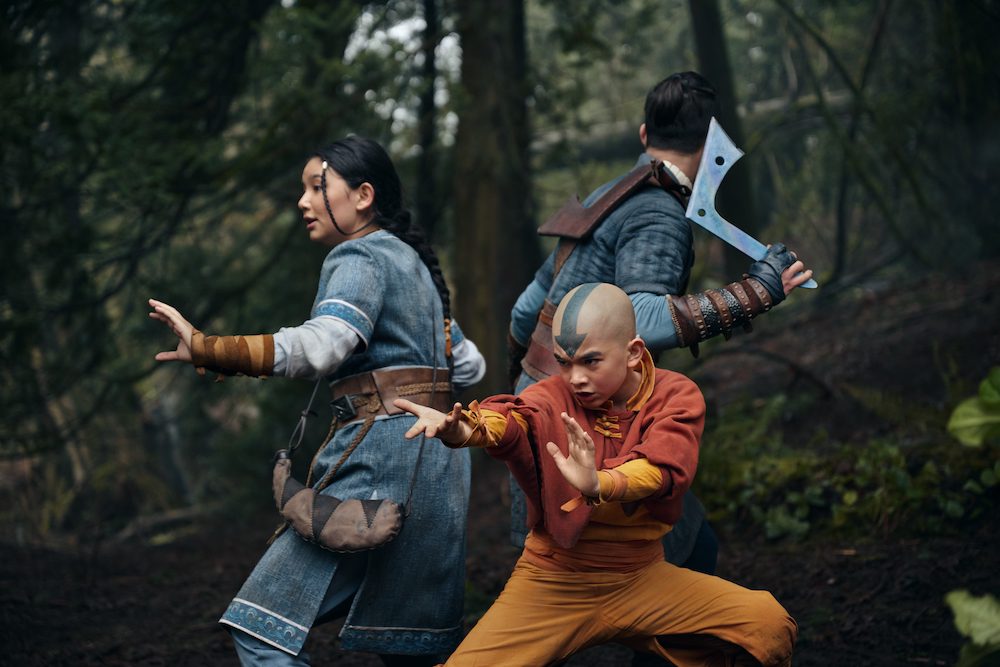
Synopsis
Avatar: The Last Airbender is a live-action fantasy adventure series that’s based on the animated series of the same name. It is an adaptation of the first season of the animated series – Book One: Water. In a world where special martial artists can wield the power of one of the elements, the Fire Nation has waged war for global dominance. The Avatar, who can master all four elements, is the world’s last hope at peace – but he has vanished for the last hundred years.
Directors: Michael Goi, Roseanne Liang, Jabbar Raisani, and Jet Wilkinson
Writers: Michael Dante DiMartino, Audrey Wong Kennedy, Albert Kim, Bryan Konietzko, Keely MacDonald, Christine Boylan, Joshua Hale Fialkov, Emily Kim, Gabriel Llanas, Ubah Mohamed, and Hunter Ries
Running time: 47 – 63 minutes
Episodes: 10

Cast:
- Gordon Cormier (Aang)
- Kiawentiio (Katara)
- Ian Ousley (Sokka)
- Dallas Liu (Prince Zuko)
- Paul Sun-Hyung Lee (Uncle Iroh)
- Ken Leung (Commander Zhao)
- Daniel Dae Kim (Fire Lord Ozai)
- Lim Kay Siu (Gyatso)
- Elizabeth Yu (Princess Azula)
- Thalia Tran (Mai)
- Momona Tamada (Ty Lee)
- Maria Zhang (Suki)
- Arden Cho (June)
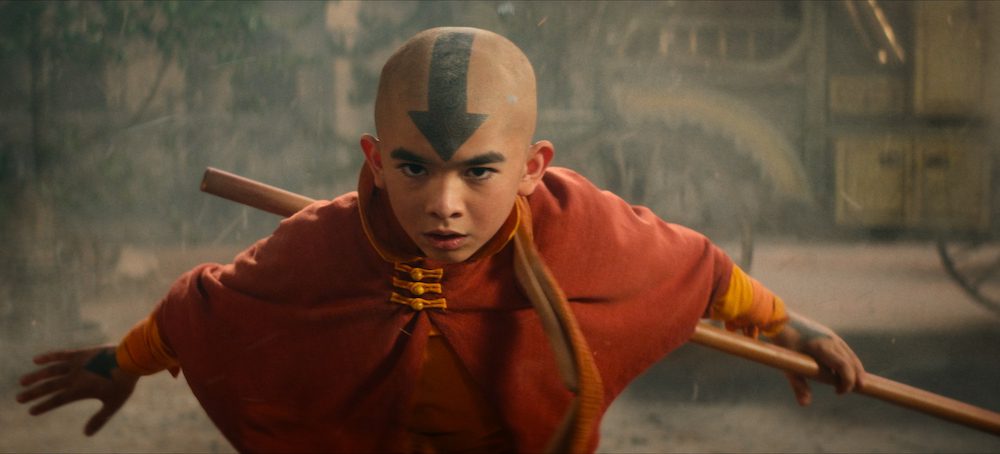
Strong characterisation and powerful motivations
While it’s a fantasy world where martial artists lob elemental energies at each other, the conflicts are, at heart, rooted in character. And isn’t that what good storytelling is about – characterisation and conflict? Even though it’s a fantasy series, even though it’s an adaptation, the series never forgets to ground the storytelling in character. Sure, the main characters may have seen some changes in characterisation – but that’s either to flesh out or deepen their motivations. What compels me to watch (and keep watching) is the fact that I resonate with the characters (well, most of them, I’m not a fan of Zhao (Ken Leung), clearly) and their struggles. And beyond the special effects, beyond the stunts – that’s what truly draws me into the show.
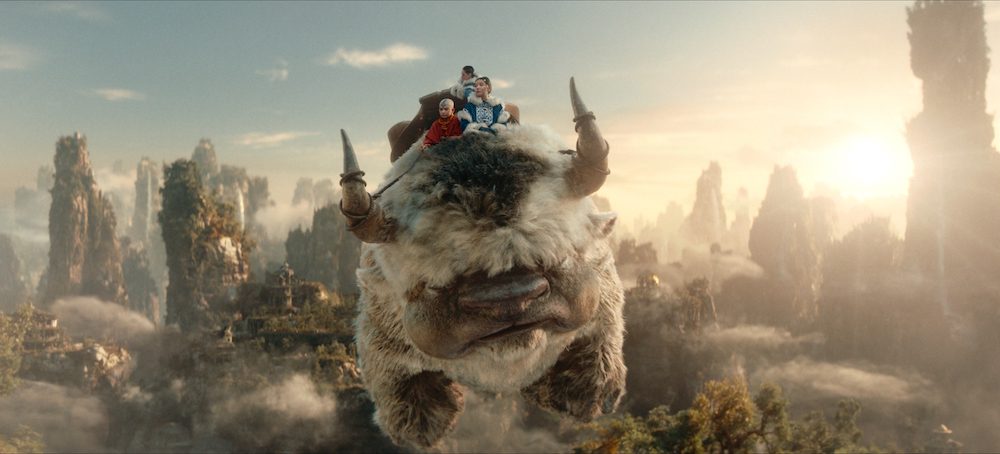
An adaptation that understands the live-action medium
I’ve read some purists who’ve complained about how this live-action series changed some storylines or omitted a certain plot or dropped a certain character. And to those comments I say – that’s exactly what an adaptation should do. It’s a different medium, a different audience, and dare I say it – a different era. No adaptation should be a straight shot-for-shot recreation of the original. Instead, it should strive to utilise the strengths of the live-action format and that of a streaming platform, and minimise elements that worked well in animation but don’t work so well in live-action.
It’s creative choices like introducing key characters early, or facing deeper and more mature issues, or even just the artistic renditions of the locations and characters. If there’s one thing Avatar: The Last Airbender has done, it’s shown us that a live-action version of the series will not only look decent, it can also be a good show in and of itself.

Aang carving his own path as the Avatar
One of the changes I noticed was focusing on Aang (Gordon Cormier) and his desire to emulate the path of the previous Avatars, but learning that it was not wrong for him to find his own way. While this was in the original, it became the defining character arc of Aang in this series – with good effect. It’s all the more relevant in today’s day and age, when people are empowered to make their own decisions, instead of following the geriatric mutterings of those who have come before them. This is an Aang whose struggle has been sharpened and modernised for today’s audiences, and it has paid off in a character arc that humanises the most powerful character in the show.
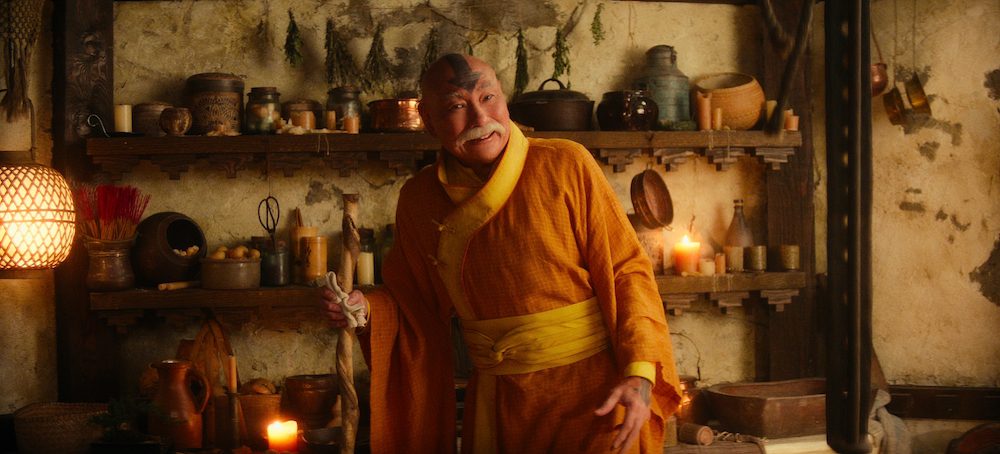
Hello, Lim Kay Siu!
Eh okay just fanboying here, but I was stoked to see Singapore represented on the big screen with Lim Kay Siu playing the role of monk Gyatso. I don’t know him personally (would love to say hi to him one day though!) but there was so much pride in seeing a Singaporean on screen, in a predominantly Asian production – speaking like a Singaporean. It’s not that he spoke Singlish or anything, it’s that he didn’t have to put on a Westernised slang. It’s not the first time we’ve seen Singaporeans in global productions speaking authentically, but the heart swells with pride for the nation whenever I see that.

Sokka seems too uptight
I know, I know, I’ve said that an adaptation shouldn’t be a direct recreation of the original. But I really didn’t like this depiction of Sokka (Ian Ousley). He came across as too uptight, too rigid, too controlling – which is very far from his animated counterpart, who was mostly nonsensical and light-hearted. Perhaps it wouldn’t have translated well to live-action, and maybe it didn’t make sense in light of their family background – but this Sokka really grated on me in the early episodes. Fortunately, he redeems himself towards the second half of the season.

Conclusion
I’m saying it here – I didn’t like every single change made in the live-action Avatar: The Last Airbender. But I can see why it was made, and I appreciate how so much care and thought has been put into this adaptation of the series. At the time of writing, I know that a second and third season has been ordered – so we will see the entire story being concluded on screen! Avatar: The Last Airbender teaches us many valuable lessons about adapting stories for different mediums – and most importantly, it’s done a good job of it.
Score: 8.8/10

Avatar: The Last Airbender (live-action) is available on Netflix.
The following shows are also on Netflix:
I loved The Legend of Korra back in 2014 – it was a sequel series that focused on the Avatar who came after Aang.
Here are my episode reviews from that series:
- [TV Review] “Rebirth” – Episode 2, Season 3/Book 3 of The Legend of Korra
- [TV Review] “The Earth Queen” – Episode 3, Season 3/Book 3 of The Legend of Korra
- [TV Review] “In Harm’s Way” – Episode 4, Season 3/Book 3 of The Legend of Korra
- [TV Review] “The Metal Clan” – Episode 5, Season 3/Book 3 of The Legend of Korra
- [TV Review] “Old Wounds” – Episode 6, Season 3/Book 3 of The Legend of Korra
- [TV Review] “Original Airbenders” – Episode 7, Season 3/Book 3 of The Legend of Korra
- [TV Review] “The Terror Within” – Episode 8, Season 3/Book 3 of The Legend of Korra
- [TV Review] “The Stakeout” – Episode 9, Season 3/Book 3 of The Legend of Korra
- [TV Review] “Long Live the Queen” – Episode 10, Season 3/Book 3 of The Legend of Korra
- [TV Review] “The Ultimatum” – Episode 11, Season 3/Book 3 of The Legend of Korra
- [TV Review] “Enter the Void” – Episode 12, Season 3/Book 3 of The Legend of Korra
- [TV Review] “Venom of the Red Lotus” – Episode 13, Season 3/Book 3 of The Legend of Korra
- [TV Review] “After All These Years” – Episode/Chapter 1, Season 4/Book 4 of The Legend of Korra
- [TV Review] “Korra Alone” – Episode/Chapter 2, Season 4/Book 4 of The Legend of Korra
- [TV Review] “The Coronation” – Episode/Chapter 3, Season 4/Book 4 of The Legend of Korra
- [TV Review] “The Calling” – Episode/Chapter 4, Season 4/Book 4 of The Legend of Korra
- [TV Review] “Enemy at the Gates” – Episode/Chapter 5, Season 4/Book 4 of The Legend of Korra
- [TV Review] “The Battle of Zaofu” – Episode/Chapter 6, Season/Book 4 of The Legend of Korra
- [TV Review] “Reunion” – Episode/Chapter 7, Season/Book 4 of The Legend of Korra
- [TV Review] “Remembrance” – Episode/Chapter 8, Season/Book 4 of The Legend of Korra
- [TV Review] “Beyond the Wilds” – Episode/Chapter 9, Season/Book 4 of The Legend of Korra
- [TV Review] “Operation Beifong” – Episode/Chapter 10, Season/Book 4 of The Legend of Korra
- [TV Review] “Kuvira’s Gambit” – Episode/Chapter 11, Season/Book 4 of The Legend of Korra
- [TV Review] “Day of the Colossus” – Episode/Chapter 12, Season/Book 4 of The Legend of Korra
- [TV Review] “The Last Stand” – Episode/Chapter 13, Season/Book 4 of The Legend of Korra
This is an original article on marcusgohmarcusgoh.com.
Leave a Reply